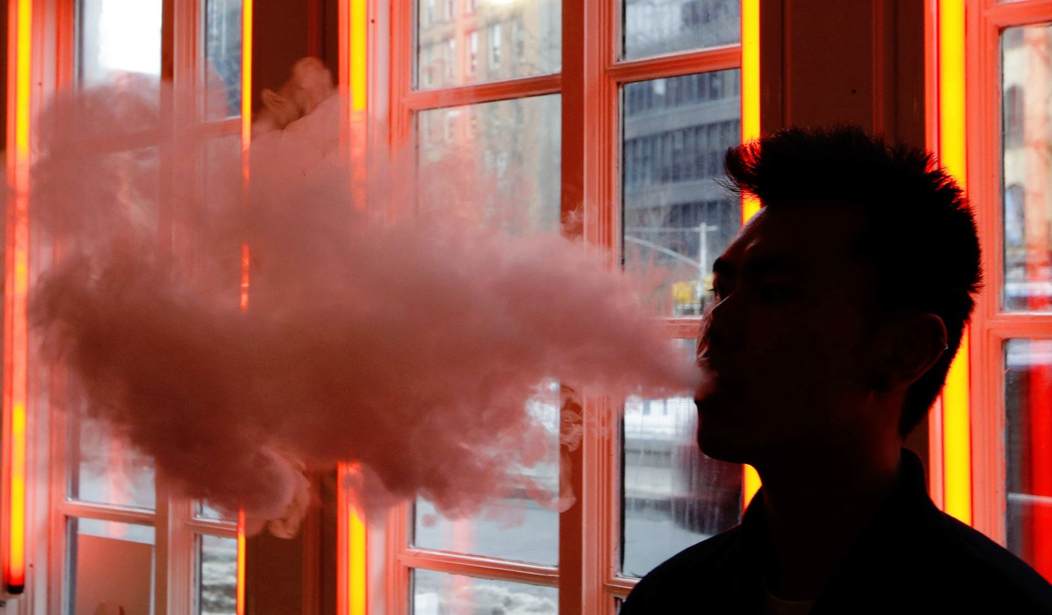The rise of the scourge that is youth e-cigarette use in America is certainly something that cannot go unnoticed or unaddressed. However, instead of approaching the problem rationally and carefully -- as we should approach all areas of national policy -- it seems that all too many in Washington are more than willing to rush the deliberative process for the sake of moral panic and, in so doing, will end up throwing the baby out with the bathwater.
One such example comes from Rep. Frank Pallone (D-N.J.) who introduced a piece of legislation back in April aimed at tackling this problem. The Reversing the Youth Tobacco Epidemic Act, H.R. 2339, characteristically follows the flawed paternalistic view of government that seems to plague the modern leftist wing in Congress. In this case, H.R. 2339 would ban the sale of all flavored tobacco products, including menthol, across the United States.
Of late, there has been much ink spilled over the purported dangers that e-cigarette use presents to our youth. Yet, few have taken the time to consider the flip-side of this issue: how e-cigarettes help current adult smokers. The decision to impose an outright ban on all flavored tobacco products highlights how House Democrats -- and some Republicans -- are missing the forest for the trees.
Not only will banning flavored tobacco products fail to impact the incidence of youth vaping, but it will also harm over 23 million active adult smokers who are trying to quit.
First, it is important to note that banning flavors won’t impact youth vaping. We know this because we’ve tried it before. In 2009, the FDA finalized a flavor ban for most types of flavored cigarettes, including hazelnut, fruit, and cola-flavored leaf cigarettes. The FDA believed then, as they do now, that “sweet-tasting flavors are particularly appealing to youth and young adults,” and were directly impacting the already declining rates of youth smoking. As we highlighted in a recent issue brief on the subject, “according to HHS data on the percentage of students smoking cigarettes, the ban on flavored cigarettes had practically no effect on the already downward trending rate of youth cigarette use,” demonstrating “categorically that banning flavored cigarettes had a negligible, if any, impact on youth smoking.” In short, Rep. Pallone has decided to use a ten-pound sledgehammer to drive a two-bit nail.
Recommended
E-cigarettes present current smokers with a unique and effective harm reduction alternative. Research has shown that “e-cigarettes can substitute the physical, psychological, social, cultural and identity-related dimensions that were previously enjoyed about tobacco smoking, and thus may uniquely support long-term smoking relapse prevention.” Approximately 70 percent of the 34 million American adult smokers claim that they want to quit smoking. By placing unnecessarily strict regulations on the use of these products, Rep. Pallone and his colleagues are effectively telling millions of smokers that their health and their freedoms are secondary.
Children vape underage for the same reasons that they smoke underage or drink underage; it’s a rebellious and trendy thing to do. If our goal is to reduce the number of youth in our country that use these products, it would be far more effective to treat these youth with actual consideration rather than condescendingly banning any product that tastes remotely fruity. Taking such a punitive approach to the issue of youth e-cigarette use is not only reductionist and patronizing, but, more importantly, it ignores the real issue that youth nicotine use is a cultural problem that won’t be solved with a simple ban.
Rep. Pallone wants to pass H.R. 2339 so that he can go back and tell his district that he single handedly solved the youth vaping crisis. But what Rep. Pallone doesn’t seem to understand is that his bill will very likely result in more deaths because people who would be denied a safer alternative will use traditional combustible cigarettes.
Between 1976 and 2018, the United States managed to dramatically reduce the incidence of youth cigarette smoking from nearly 30 percent to around 3 percent among high school seniors. We managed this incredible feat, not through bans or moratoriums, but through education. If we want to attack the public health problems of nicotine use in our country, we must approach them from a place of compassion and understanding, not condescension and prohibition. Education works. Bans don’t.
























Join the conversation as a VIP Member